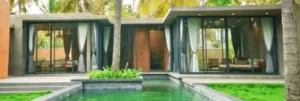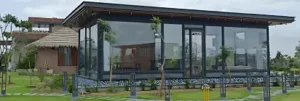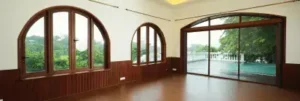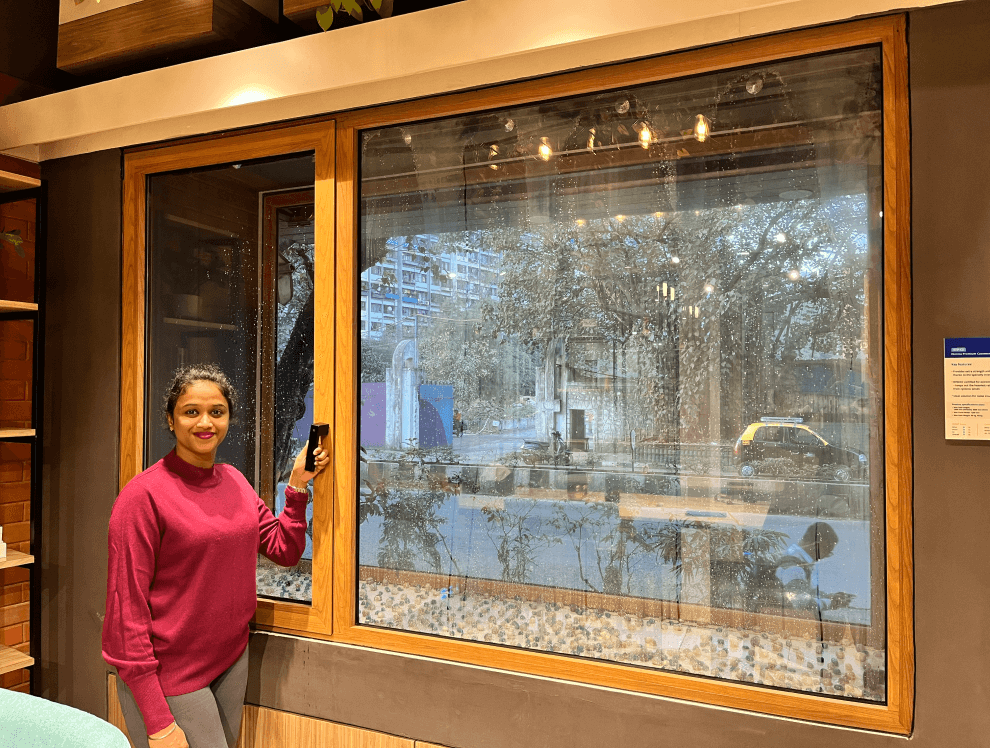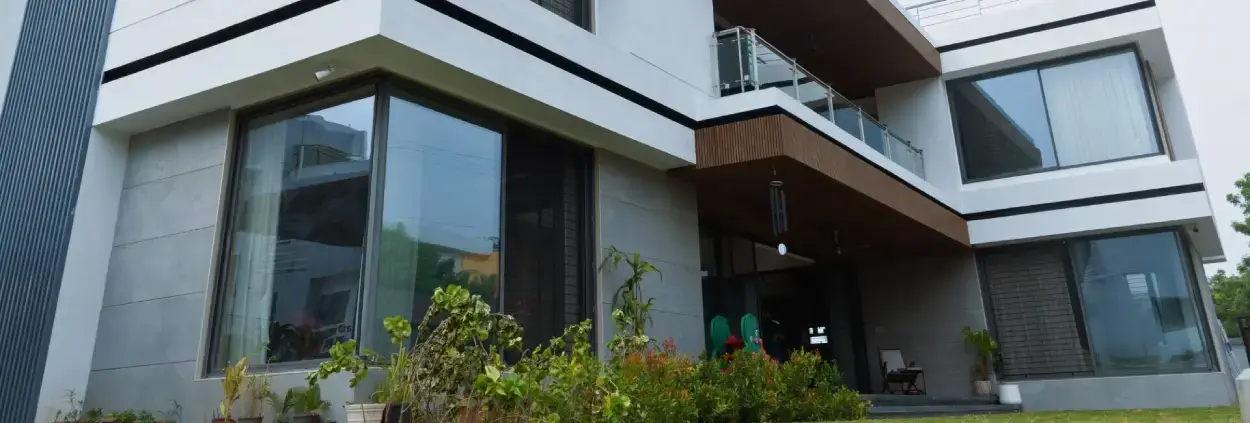
How Aluminium Windows Help You Build a More Sustainable Home
Sustainability is no longer just a trend; it’s a necessity for modern living. From choosing eco-friendly construction materials to reducing energy consumption, every detail counts when building or renovating a home. One of the most overlooked yet impactful decisions is the type of windows you install. Windows in aluminium have quickly become a favourite among homeowners, architects, and builders who want to create greener, more sustainable spaces.
With advanced aluminium windows designs and options like aluminium windows sliding, these windows combine durability, aesthetics, and energy efficiency, all while reducing your home’s environmental footprint. Let’s explore how aluminium windows play a key role in building a truly sustainable home.
Why Are Aluminium Windows Considered Sustainable?
Aluminium is one of the most eco-friendly building materials available today. Unlike plastics or treated wood, aluminium, especially specialised alloys like Duranium, created by Hindalco for Eternia, is infinitely recyclable without losing strength or quality. This means that every time aluminium is reused, it significantly reduces the environmental impact as it results in minimal wastage.
By choosing windows in aluminium, you’re supporting a material that promotes circular economy practices while minimising waste. Moreover, aluminium frames can be combined with high-performance glazing, which reduces energy loss and helps lower heating and cooling costs.
How Do Aluminium Windows Reduce Energy Consumption?
A significant aspect of sustainability is energy efficiency. Modern aluminium windows designs are no longer the poor insulators they once were. With innovations such as double or triple glazing and advanced sealing systems, such as Eternia, one of the leading aluminium window and door manufacturers’ incorporation of high-quality gaskets and silicated wool fins, aluminium windows now rival or even outperform other materials in terms of insulation.
For example, aluminium windows sliding are designed with precision frames and weather-tight seals that minimise air leakage. This keeps interiors cool during summers and warm during winters, reducing your reliance on air conditioning or heaters. As a result, your energy bills shrink while your home becomes more environmentally friendly.
Do Aluminium Windows Last Longer Than Other Options?
Yes, longevity is another reason aluminium is considered sustainable. A window that needs frequent repairs or replacements creates unnecessary waste and increases the demand for raw materials.
Aluminium is naturally resistant to rust, warping, and corrosion, making windows in aluminium exceptionally durable. Unlike wood, which may rot or swell, or uPVC, which can crack and discolour, aluminium maintains its structure and appearance for decades with very little maintenance. The longer lifespan means fewer replacements and less environmental impact in the long run.
What Role Do Aluminium Windows Play in Indoor Comfort?
Sustainability is not just about the planet; it’s also about improving the quality of life inside your home. With thoughtfully designed aluminium windows sliding, you can achieve better indoor air quality and natural ventilation. Large sliding windows, for instance, make it easier to bring fresh air into your home, reducing the need for mechanical ventilation.
At the same time, modern aluminium windows designs maximise the entry of natural light, reducing the need for artificial lighting during the day. This not only lowers electricity use but also supports healthier living by connecting you with daylight and outdoor views.
Can Aluminium Windows Match Any Architectural Style?
Absolutely. One of the biggest advantages of aluminium is its versatility. Whether you’re building a contemporary villa, a minimalist apartment, or a traditional family home, there are aluminium windows designs to suit every style.
From slim frames that allow for expansive glass panes to elegant finishes that replicate wood or matte metallic tones, aluminium offers a wide range of customisation. Sliding windows, casement windows, or even large floor-to-ceiling panes, aluminium adapts seamlessly to different architectural needs while enhancing sustainability.
How Do Aluminium Windows Compare with Other Materials in Sustainability?
When compared with wood or uPVC, aluminium often comes out ahead in terms of sustainability:
-
Wood
Although natural, wood requires ongoing maintenance and can contribute to deforestation if not sourced responsibly. -
uPVC
Although cost-effective, it is derived from non-renewable petrochemicals and is less recyclable than aluminium. -
Aluminium
Fully recyclable, long-lasting, and energy-efficient when paired with modern glazing.
This makes windows in aluminium a responsible choice for homeowners who care about long-term ecological balance.
Do Aluminium Windows Require Low Maintenance?
Yes, and this is another sustainability advantage. Aluminium windows sliding or casement designs require little more than occasional cleaning with water and a mild detergent. Powder-coated or anodised finishes prevent scratches, fading, and corrosion, ensuring the frames stay in excellent condition for decades.
This low-maintenance quality reduces the need for chemical cleaners, paints, or varnishes, all of which can have environmental consequences. Over time, the reduced upkeep adds to both cost savings and ecological benefits.
Final Thoughts
When you choose aluminium windows designs for your home, you’re not just investing in stylish frames; you’re making a conscious choice for sustainability. These windows reduce energy consumption, last for decades, require minimal maintenance, and support eco-friendly construction practices.
From aluminium windows sliding for urban apartments to expansive fixed-frame designs for villas, aluminium provides versatility without compromising the environment. By installing windows in aluminium, you create a home that is not only modern and comfortable but also aligned with the global shift towards greener living.
If you’re planning your next renovation or building a new home, aluminium windows are a smart, future-ready investment, one that benefits you, your wallet, and the planet.
Frequently Asked Questions
Aluminium windows are sustainable because aluminium is 100% recyclable and retains its strength after reuse. Modern aluminium windows designs also support energy efficiency with double glazing, reducing energy waste and your home’s carbon footprint.
Aluminium windows sliding are built with airtight seals and precision frames that reduce air leakage. When paired with energy-efficient glass, they help maintain indoor temperatures, lowering the need for heating or cooling and cutting electricity bills.
Absolutely. With double or triple glazing, aluminium windows designs minimise heat transfer. This keeps your home cooler in summer and warmer in winter, reducing energy use from ACs or heaters.


 +91 97699 40000
+91 97699 40000